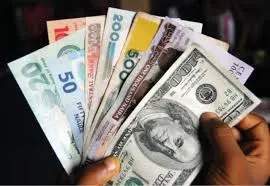In a significant economic development, the unification of Nigeria’s exchange rate has led to a substantial increase in revenue from foreign exchange differences, reaching an impressive N1.36 trillion within a span of six months. This revelation comes from data extracted from communiques of the Federation Account Allocation Committee.
The extraordinary profits are a direct result of foreign exchange revaluation gains stemming from the depreciation of the naira, which is currently trading at N825 per US dollar, compared to its closing rate of N461.50 per dollar in 2022. According to the committee’s communique, the difference surged from N0.639 billion in June to an astounding N364.87 billion in November.
Breaking down the accrued revenue, the government disbursed N320.89 billion in July, N229.67 billion in August, N186.81 billion in September, and N262.89 billion in October. Before reaching the three tiers of government, statutory deductions, including the 13 per cent derivation and other charges, are applied.
Post-deductions, the Federal Government claims 52.68 per cent, state governments receive 26.72 per cent, and local governments obtain 20.60 per cent based on the current vertical allocation formula for distributable net federation account revenue. Out of the Federal Government’s share, specific allocations include one per cent for general ecological problems, one per cent for the Federal Capital Territory, 1.68 per cent for the development of natural resources, and 0.5 per cent for statutory stabilization, leaving the balance of 48.5 per cent for the Federal Government.
Recent reports indicate that 13 state governments recorded substantial foreign exchange revaluation profits totaling N71.59 billion in three months, based on data obtained from the third-quarter budget implementation report. Akwa-Ibom led the earnings with N10.2 billion, followed by Jigawa (N7.23 billion), and Imo (N6.26 billion). Notably, Bauchi recorded the lowest profit of N120 million, while Ebonyi and Osun received N4.79 billion and N4.89 billion, respectively. This financial windfall reflects the economic impact of the unified exchange rate on Nigeria’s fiscal landscape.











